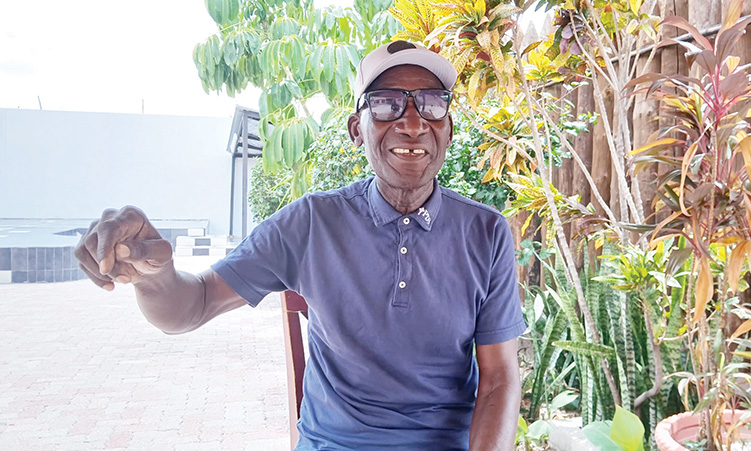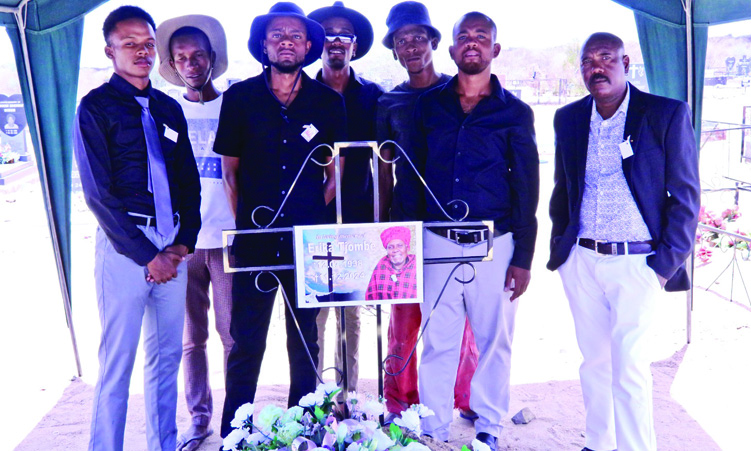President Hage Geingob’s recent statements comparing the severity of the apartheid era to the Herero-Nama genocide have ignited a wave of criticism.
Geingob made these remarks at a public lecture at the Paris Institute of Political Studies last week discussing reconciliation between Germany and Namibia.
He said the Herero-Nama genocide of 1904 to 1908 occurred many years ago, predating South Africa’s military occupation of Namibia in 1915.
The president’s stance on the matter was in response to enquiries about the status of a draft joint declaration between Namibia and Germany.
“Reconciliation of Germany and Namibia is there. We have diplomatic relations, we have peace. This genocide happened how many years ago. Over a hundred years ago.
“After that the South Africans took over. They were worse, and then Swapo started to fight to free the country,” Geingob said.
Sima Luipert, a genocide activist affiliated with the Nama Traditional Leaders Association technical committee, this week expressed dismay at Geingob’s comments, suggesting that he may not fully grasp the distinction between genocide and apartheid.
“Genocide means exterminate. Was apartheid about exterminating all black people? It’s really sad that a head of state can make comparisons about the weight of suffering,” she said.
Approximately 50 000 to 65 000 Herero and 10 000 Nama people are believed to have died during the harrowing four-year genocide.
Luipert said this genocide constituted a brutal mass slaughter, resulting in the Herero and Nama communities being reduced to minority status in today’s independent Namibia.
“These [remarks] show Geingob’s complete disrespect and violation of the rights of people who are minorities in Namibia today.
“It also borders on questioning the citizenship of minorities in Namibia,” Luipert said.
She said Swapo’s concept of reconciliation appears to centre on the notion that white oppressors merely need to offer apologies, while the grave atrocities they perpetrated are either not effectively addressed or addressed in a superficial manner.
The leader of the official opposition party, the Popular Democratic Movement’s McHenry Venaani, has criticised Geingob for “downplaying” this tragic chapter by drawing comparisons with other periods of grave human rights abuses, characterising it as a deeply flawed exercise in judgement.
“The insensitivity of these comments is made all the more glaring when one considers that they were made on an international platform.
“It is highly inappropriate for a head of state to make divisive remarks that not only open old wounds but also risk stigmatising the communities that still bear the scars of these historical atrocities,” Venaani says.
He says remarks like these only serve to foster division when unity is paramount in addressing the numerous challenges the country is faced with, which include economic instability, a soaring unemployment rate, and environmental degradation.
“A true leader should aim to unite their people under the banner of mutual respect and shared history, acknowledging each community’s unique experiences and the collective pain that has shaped the nation,” Venaani says.
In response to criticism of Geingob’s remarks, presidential spokesperson Alfredo Hengari says Geingob has played a significant role in advancing negotiations on the genocide issue, resulting in reparations exceeding €1 billion.
“There are those who were sitting on the other side, with apartheid oppressors, and therefore not well placed to speak on questions of unity and justice.
“We cannot receive lessons about justice from them,” Hengari says.
He says Geingob discussed the topic of genocide reparations with German chancellor Olaf Scholz during the 78th United Nations General Assembly (Unga).
Hengari says Geingob is currently focused on Namibia’s contribution to the Unga where he as co-chairperson will play a vital role in preparing the Summit of the Future in 2024.
“President Geingob as a freedom fighter and now as the third president has always fought for justice and the unity of the Namibian people, including on the question of the 1904 genocide,” he says.
Stay informed with The Namibian – your source for credible journalism. Get in-depth reporting and opinions for
only N$85 a month. Invest in journalism, invest in democracy –
Subscribe Now!










